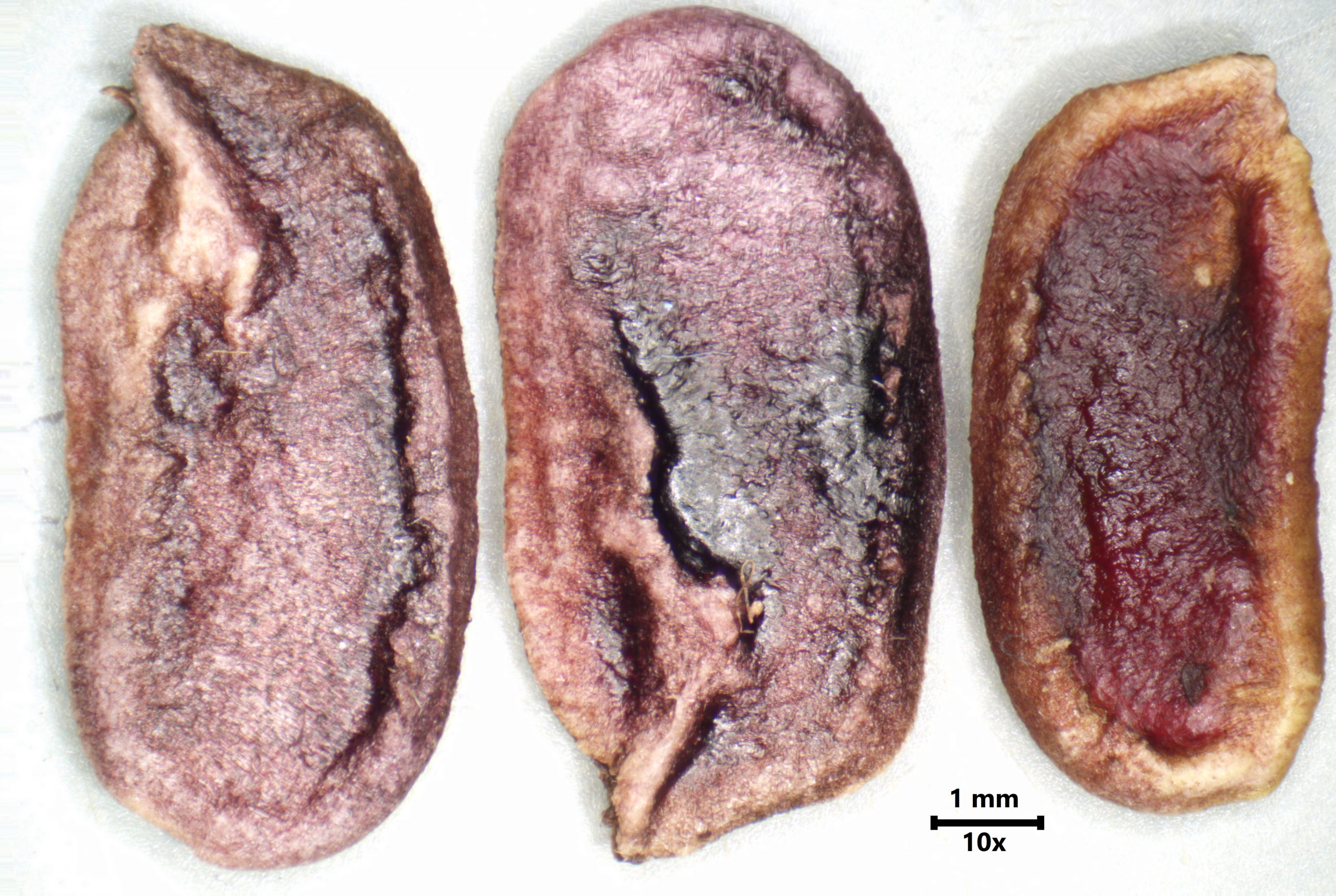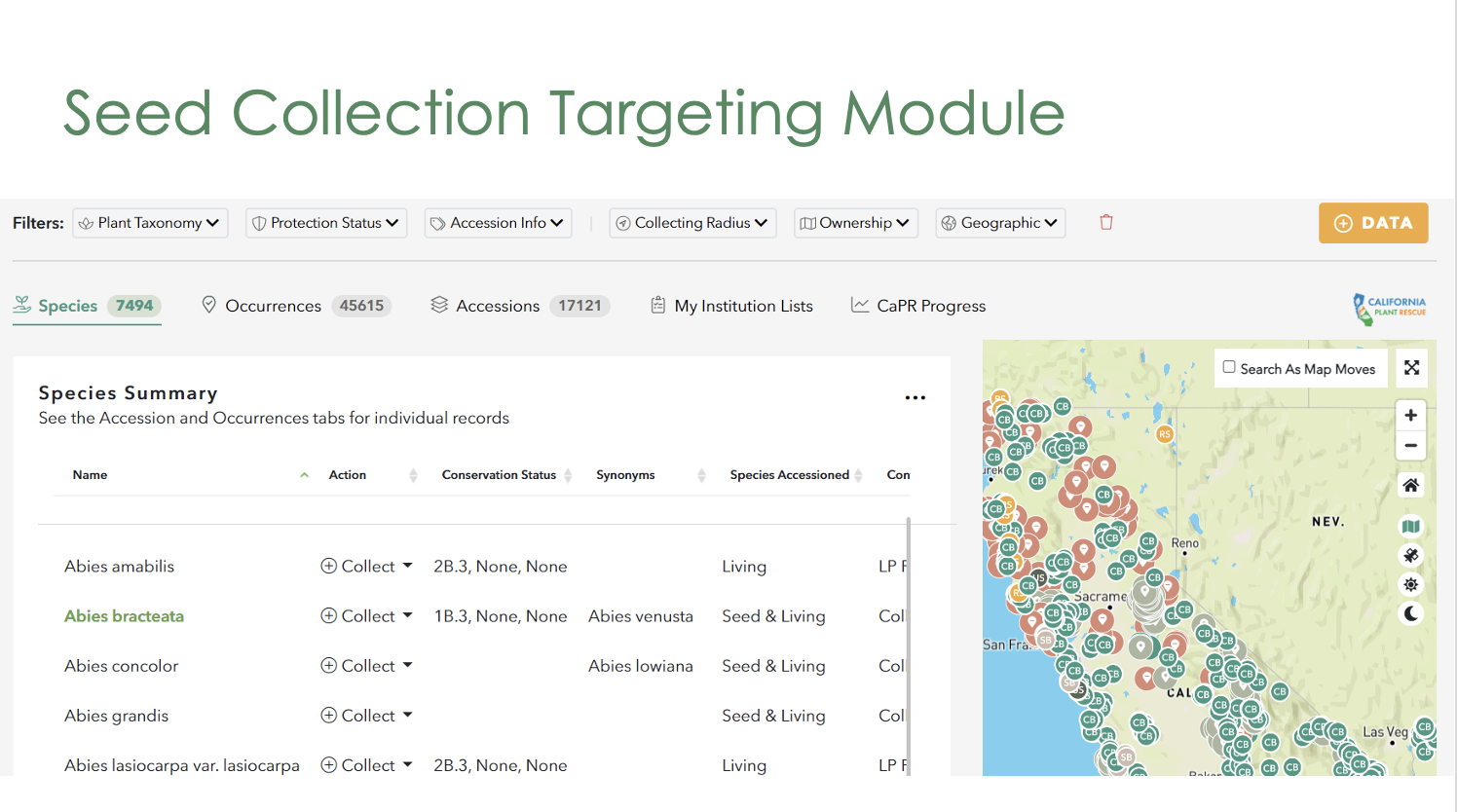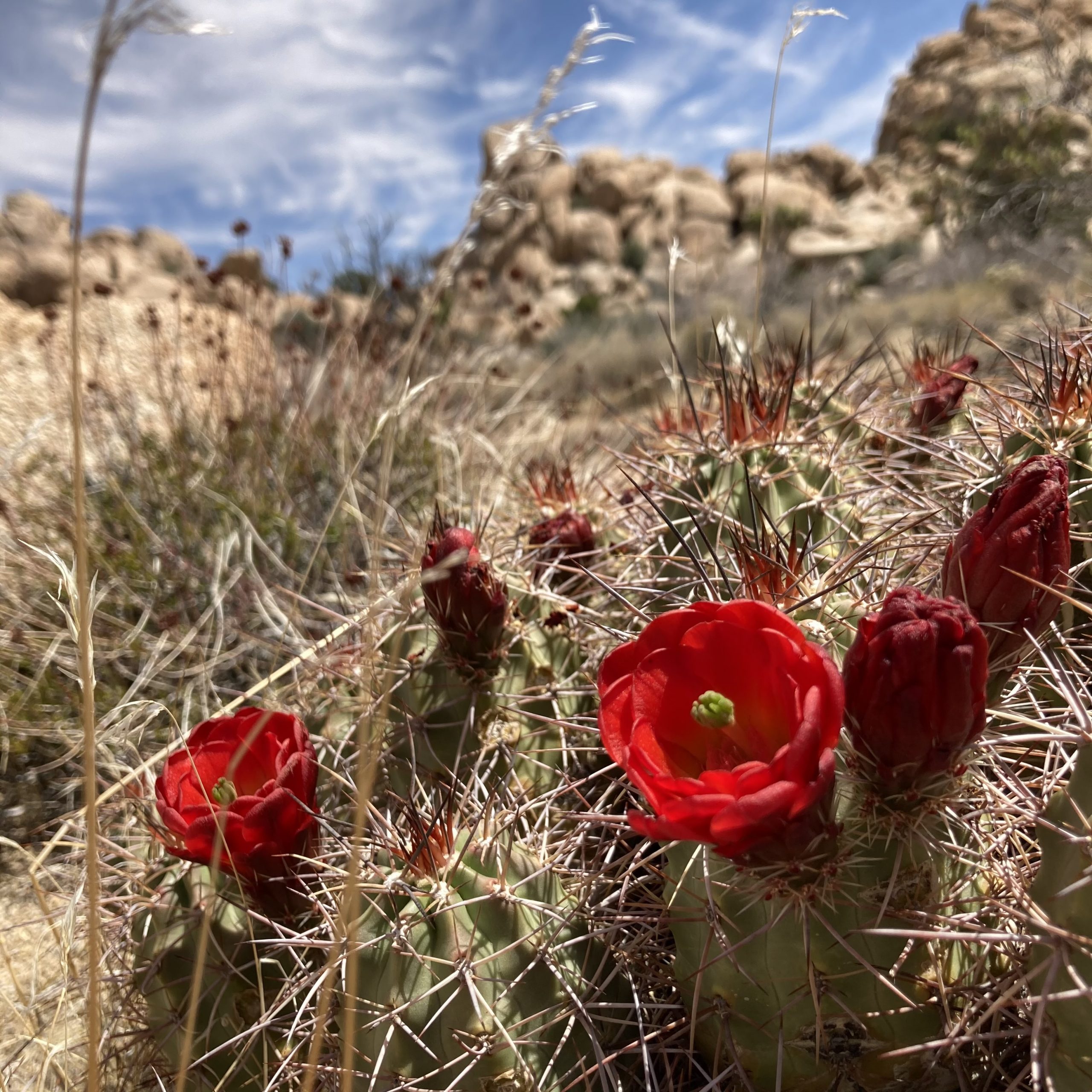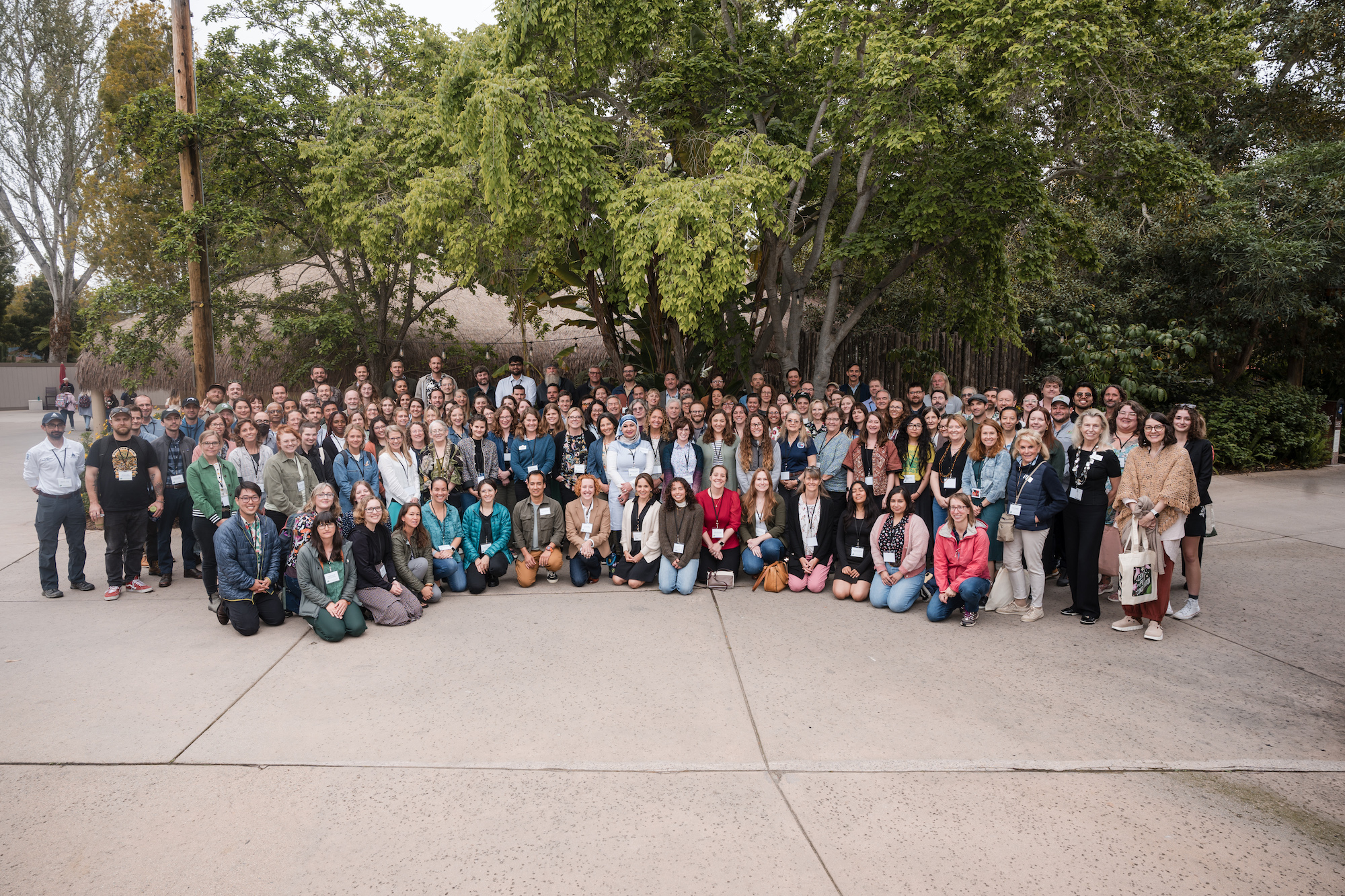Highlights from the CPC National Office
During the National Meeting, the CPC National Office team and several of our partners gave a series of presentations highlighting CPC-led initiatives that support our network’s shared mission to save plants from extinction, including federal grant-funded projects, expanded CPC database tools and educational resources, and a new cooperative agreement with the National Park Service. These programs and resources demonstrate CPC’s enduring commitment to plant conservation—from advancing plant conservation science through innovative technologies and methodologies to making plant-saving knowledge accessible to global audiences. We are proud to support our conservation community through these initiatives—learn more below!
Seed Longevity Study
For the past several years, CPC has been collaborating with its network of Conservation Partners and the National Laboratory for Genetic Resources Preservation (NLGRP) to test the aging and longevity of wild rare plant species’ seeds in long-term orthodox seedbanks. Now in its final year, this Institute for Museum and Library Services-funded Seed Longevity Study has shown promising results for the rare and endangered species we steward in the CPC National Collection. CPC’s former VP of Science and Conservation, Dr. Katie Heineman, and Dr. Chris Walters of NLGRP shared some of those preliminary results during this year’s conference.

The study—which utilizes RNA integrity number (RIN) as a metric of seed aging—compared the germination-based viability and RNA integrity of seeds held in frozen storage for 15+ years to seed recollected or regenerated from the same plant population. Collaborators tested the hypothesis that RIN can help approximate seed health in storage, which can be used to inform curation and management decisions surrounding rare plants. Results showed that RIN is in fact a reliable metric of aging and predicting seed longevity for wild rare plant species, and ecological factors heavily influence seed longevity, including habitat, life form, bloom period, and more.
Results of the study will be published in peer-reviewed publications and will be refined into new best practice guidelines for rare plant curation methods. Additionally, a terminal webinar about study insights will be hosted in fall 2024 for the broader seed banking community.
Applied Plant Conservation Course
The Rare Plant Academy’s newest offering, the Applied Plant Conservation Course, is a free, online professional development training designed to equip both current and prospective members of the botanical workforce with the tools and knowledge needed for effective rare plant stewardship and conservation.
The course, which has been in development since 2021 with partial funding from the Bureau of Land Management, was officially launched at the 2023 National Meeting and is now in its final year of development. During this year’s conference, CPC’s Director of Communications and Public Programs, Shannon Fowler, shared a progress update on the course’s curriculum development created in collaboration with 19 of CPC’s Institutional Conservation Partners. Modules I-V are currently available on the course platform—covering topics from rare plant ecology and genetic diversity to conducting rare plant surveys (see the video at right for a preview from Module IV!) and reintroductions, and much more. The remaining four Modules set to launch by the end of 2024.
Shannon also shed light on the diverse participant base that has engaged with the course thus far, highlighting the interdisciplinary nature of conservation efforts and the global reach of our initiative. Of the 400 participants enrolled in the course as of May 2024, 52% opted into our pre-course survey which serves to help CPC understand how the course is being used, why participants are interested in the course and what their current conservation knowledge level is, what their professional affiliations are, and more. The majority of respondents hail from the United States (69%), followed by The Philippines (9.5%), Canada (4%), South Africa (2.5%), the United Kingdom (2%), and other countries across the globe (13%). Respondents identified themselves across a variety of conservation disciplines and interests, including conservation professionals (52.5%), land managers (29%), interested community members (25.5%), undergraduate and graduate students (25%), horticulture professionals (19.5%), and other affiliations (17.5%). Additionally, 79% of respondents are not yet members of CPC and have not previously utilized Rare Plant Academy resources, indicating that we are reaching new audiences and introducing them to the CPC network’s expert plant conservation knowledge and best practices.
Lastly, a call-to-action was shared for volunteers to participate in a final beta-testing activity to help inform improvements to the course platform and user experience. Beta testing is an opportunity for us to engage learners with the course so we can make edits to the user experience, design, and structure to helps us improve the course to best serve learners. We are actively seeking volunteers to participate in this beta testing activity by July 31, 2024. Interested in beta testing? Learn more here.
CPC is pleased to offer this course to interested participants, free-of-charge, with the aim to foster further collaboration and education within the botanical community. Once all nine Modules of the course are online, CPC will offer a certificate of completion to those who complete the full course curriculum.
Regional Initiatives and Databases
For the past several years, CPC has been involved in two regional seed collections initiatives, California Plant Rescue and Florida Plant Rescue, in collaboration with network Conservation Partners based in those regions. These initiatives aim to secure each region’s rare flora in conservation collections to safeguard them from extinction. At this year’s conference, CPC’s Conservation Program Coordinator, Tina Stanley, shared updates on these regional initiatives and highlighted an exciting data resource stemming from them, CPC’s Seed Collection Targeting Module.

This database resource synthesizes ex situ collection data with in situ occurrence records from natural heritage programs and government agencies, allowing for more streamlined targeting of priority species and populations. This module is being expanded for CPC Conservation Partners to include Nevada through an agreement with the Nevada Division of Natural Heritage; Arizona and New Mexico in collaboration with USFS Region 3; and several intermountain states through a new agreement with the Department of the Interior (NPS, BLM, USFWS). Combining resources into this new tool allows us to effectively facilitate the collection of high-priority seeds that then make their way into seedbanks.
For seeds already secured in storage, the next step is to safely and thoughtfully get them back out into their wild habitats. Tina shared an update on the revamped CPC Reintroduction Database (CPCRD), which serves as a centralized and standardized repository of information to advance the science and practice of plant reintroductions and other conservation translocations. The CPCRD is up to an impressive 480 reintroduction projects documented. Data from these projects, spanning nearly 40 years of conservation work throughout the CPC network and beyond, is contributing to analyses to better understand what contributes to reintroduction success.
Both the Seed Collection Targeting Module and the CPCRD allow us to standardize data across many institutions and years and synthesize the data so that conservation practitioners can make timely, informed decisions that collectively help us save plants from extinction.
CPC and National Park Service Cooperative Agreement
Katie VinZant of the National Park Service (NPS) announced the launch of a new cooperative agreement which articulates the methods for how NPS units can coordinate with CPC-affiliated institutions to assess, collect, and act as repositories for ex situ conservation collections made from plant species found on NPS lands.
Historically, NPS rare plant conservation activities had been park-centric and internal, with seed considered NPS property which could not be shared. Under this new cooperative agreement, collaboration and partnership are emphasized in order to share resources and conduct conservation actions including evaluation, collection (of seeds, cuttings, spores, living plants, and herbarium vouchers), propagation, storage, and ex situ/in situ restoration. Additionally, this new agreement authorizes the maintenance of conservation collections including periodic germination testing, genetic testing and research, propagation trials, and more.
This new cooperative agreement will grant CPC’s Conservation Partners easier access to rare plant populations occurring on NPS land and facilitate deep partnerships as we work together to protect and conserve rare plants. The agreement is in place through April 2028, with the option to be renewed. CPC Conservation Partners who wish to learn more can visit the “Grant Program Resources” section of the CPC Partner Resources dashboard.

-

2024 National Meeting day one at the San Diego Zoo and Safari Park. Photo by Bob Hoffman Photography. -

2024 National Meeting Attendees at the San Diego Zoo Safari Park. Photo by Bob Hoffman Photography. -

Attendees of the 2024 National Meeting on a tour of the San Diego Zoo Safari Park's gardens. Photo by Bob Hoffman Photography.